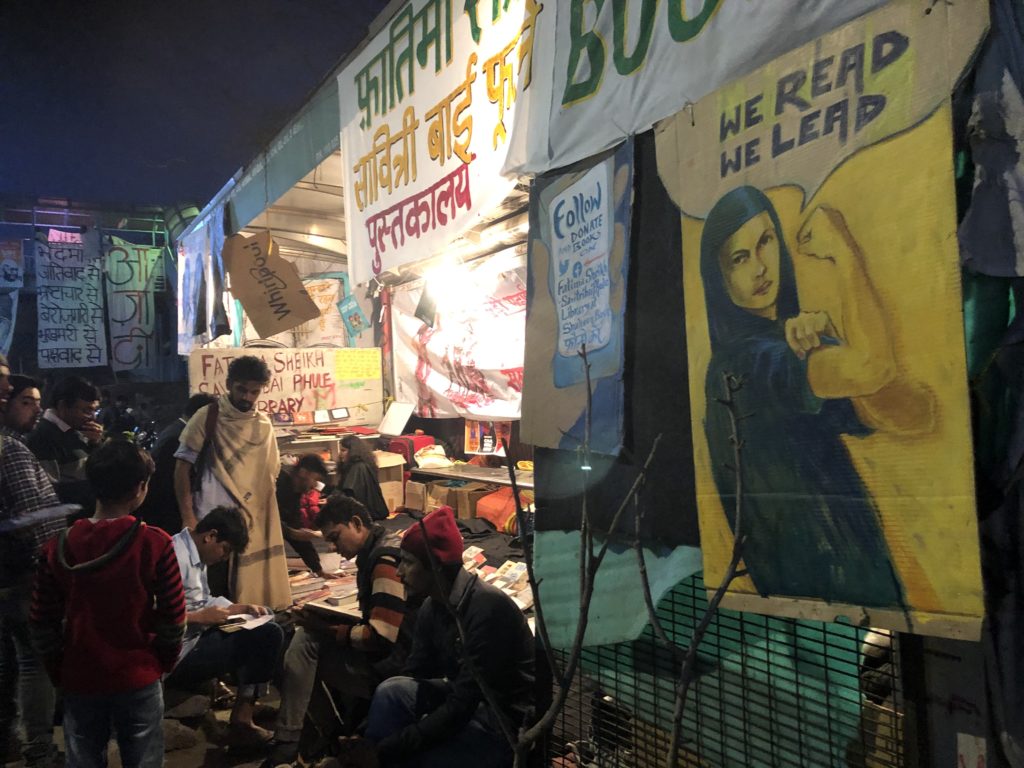
For the last two and a half years I’ve been pursuing a PhD in Art History at the University of Sussex. In the last month, the fate of another Sussex alumni, Devangana Kalita, and several other students in India, has come to my notice, hence this blog post.
Student protest: it’s a welcome phenomena. Students bring idealism and courage to politics, the world over. We all have a friend, a cousin, a child who has marched and shown up in the support of black lives, or Extinction Rebellion. Maybe simply a protest against fees.
In India, for the last few months, most student protests have centred around an unjust law which, when taken alongside the National Register of Citizens (NRC), disenfranchises the country’s vast muslim population. It’s been called the Citizen’s Amendment Act (CAA).
Unfortunately, for many of the poor and for the muslim population, who were dispossessed around the time of partition, and for whom droughts, floods, and fires have caused constant displacement, citizenship papers simply do not exist.
The situation is especially dire for women – with patriarchal norms in the country making it impossible to trace back names and lineage, let alone papers. As a result, these groups face deportation and internment. The climate, since the rise of hindu fundamentalism under strongman PM Modi, is such that muslims throughout India are facing a rising tide of racism and prejudice.
Devangana is one of the many students who form the conscience of the nation. Alongside Natasha Narwal, Ishrat Jahan, Safoora Zargar (who is 20 weeks pregnant and whose bail applications have been denied so far) and many, many colleagues, she took time out from her studies, to organise and to demonstrate, against the pernicious CAA, and for the rights of women in general. Tonight, these idealistic and peaceable young women are in prison, framed for charges including murder, sedition, and now, specifically terrorism. They face detainment for months and years under another draconian law, the Unlawful Activities Prevention Act (UAPA).
Along with many other students, all four are now stuck in jail. Their only ‘crime’ has been to rise up, against the CAA, to stand in solidarity with muslim women and participate in anti-CAA demonstrations. One shudders to think of the conditions in which these student-activists are being kept and the treatment they are receiving while on remand.
Some in India will say it served these young upstarts right. But I disagree. Political activism should never be an offence in a democratic state – especially not in a state which in its very inception had student uprisings as its basis. Recent developments in India, such as the CAA, have brought students, women and humanitarians from all walks of life onto the streets of the capital. None of those are a danger; yet for the Delhi police, the very students who complained about beatings and intimidation were booked for these wrongs.
Devananga and her peers, like countless others, have done nothing wrong. They saw no alternative but to organise in protest against the daily atrocities committed by the state and police in the past 12 months or so. Hired goons invaded the campus of JNU and Jamia Milia University in Delhi, and dragged students away from desks to administer indiscriminate beatings with clubs and sticks. Riots were stirred up in Delhi, leaving muslim homes and livelihoods in ashes. There have been politically-connected perpetrators of lynchings and rapes, who roam free, with many sectarian murders, often with child victims, taking place under cover of mob rule.
The UAPA is draconian beyond measure. Anyone can be picked up by the police under this law at any time, and then have to prove their innocence. Students are a soft target. Female students on a demo are simply not a threat to national security, and I have no doubt they are being framed for wrongs committed by thugs who are being protected by the state.
I therefore call for their immediate release. I call for Western journalists to report on this injustice. I call on the Foreign Office to apply political pressure to the government of India. Any interested journalists reading, please message me and I can connect you to a few better sources for more details on the story.
UPDATE: I’ve just found out that Safoora Zargar was granted bail today. Some grounds for hope.